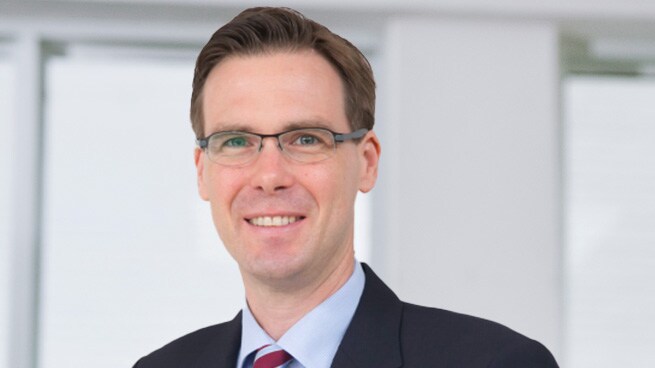
2023 CEO Survey – Different outlooks in Germany, APAC and globally
29 March, 2023
While the dual imperative of “Winning today’s race while running tomorrow’s” is true for top executives everywhere, there are differences in how CEOs view coming economic developments in general and their own company’s future in particular depending on whether they are located in Germany, in APAC or elsewhere. What are the major differences between these three groups?
The Global CEO Survey is PwC’s most comprehensive annual study. More than 4,400 CEOs from over 70 countries participated in the 26th edition, which was published in early 2023. This article highlights some of the differences in the views held by CEOs overall compared to those in APAC and those in Germany.

Different expectations for global growth
At the time the survey was conducted, there was considerable pessimism about prospects for global growth. Overall, 73 percent of CEOs were skeptical about economic developments in the coming 12 months, which was significantly different from the previous survey, when a large proportion (76%) anticipated an improvement in worldwide growth. German CEOs were even more pessimistic, at 82 percent, whereas their APAC counterparts were less so, at 69 percent.
When asked about their own territory, the gap between APAC and global CEOs widens even further. CEOs in APAC territories show the highest level of optimism in their nation’s economic prospects compared to global CEOs, at 64 percent for China, 57 percent for India and 50 percent for Indonesia. Most likely, CEOs there expect that China’s health and economic policy measures will lead to a steady recovery by the second half of 2023 and into 2024.
More concern in Germany
When asked about threats, CEOs worldwide believe most of the dangers over the next 12 months will come from inflation, macroeconomic volatility and geopolitical conflict. Whereas global and APAC executives have a similar view of those threats overall, German CEOs are considerably more concerned than their global peers about geopolitical risk (31% vs 25%) and cyber risk (29% vs 20%).
Different strategies for overcoming the crisis
CEOs around the world, including those in APAC and Germany, intend to “grow” out of the crisis by cutting operational costs, diversifying products and raising prices. Almost 50 percent of CEOs in these three categories are already taking such measures, and over 30 percent plan to do so in the coming 12 months. However, reducing the workforce, lowering compensation or implementing hiring freezes are not presently in the works or on the near-term agenda for over 60 percent of CEOs.
Unlike CEOs globally, APAC executives are more likely to adjust their presence in the current market and/or expand to new markets (53% vs 46%), adjust supply chains (49% vs 46%) or diversify their offering (48% vs 41%) as a way of driving short-term profitability and protecting their companies against adverse economic effects.

Megatrend everywhere: transformation
In addition to ensuring short-term profitability, the other half of the dual imperative facing CEOs globally is long-term transformation. Corporate leaders recognize the need to reinvent their business in order to stay relevant in a changing economic environment.
The survey shows that more than a third of APAC CEOs believe their company will not be economically viable in the next six years and over 50 percent say it will not be viable in the next decade, if they do not transform their business. The figure is 14 percentage points higher than for CEOs globally, and the sentiment is even stronger in China and Hong Kong SAR, where about 75 percent of CEOs hold this view.
Investments in upskilling, automation and supply chains
To address their transformation needs, APAC CEOs prioritize investing in upskilling (73%), followed by automation of processes and systems (71%) and deploying advanced technology (67%). The fourth priority is investments into adjusting corporate supply chains (43%).
On the other hand, German CEOs are most likely to invest into automation (86%) and deploying technologies like cloud applications, artificial intelligence (AI) and other advanced tech solutions (71%). Further, they are much more likely to invest into alternative energy sources (61%, worldwide: 34%) and supply chains (49%, worldwide: 41%), but less likely to invest into upskilling their labor force compared to their global peers (57%, worldwide: 72%). Whereas CEOs in Germany, in APAC and globally hold the same view on the current global economic environment, possible threats and the need to transform their business, the CEOs’ priorities on investments differ. China’s CEOs see a comprehensive need to transform their business in the coming years, yet their outlook remains more positive than that of their global peers.

Gabriel Wong
Inbound/Outbound Leader, Deals Markets Leader, Head of China Corporate Finance at PwC China/Hong Kong
With 31 years of investment banking and M&A experience, Gabriel is PwC China Inbound/Outbound Leader, and Deals Markets Leader. He heads PwC Corporate Finance with 100 professionals, focusing on equity fundraising for Chinese companies and lead advising M&A transactions for both foreign direct investment in China and Chinese outbound investment. Gabriel is also responsible for developing and executing PwC’s global cross-border activities for China corporates and B&R strategy by connecting the PwC China organization and PwC global network across all related industries.
Tel: +49 1512 2898663
Email

Jan Jovy
As part of the PwC China Inbound/Outbound and European Business Group, Jan supports companies in expanding their cross-border activities, transformation and footprint globally. He served as General Manager at the German Chamber of Commerce Network in Greater China for over seven years. He has been deeply involved in all aspects of business, economic and regulatory exchange platforms between China and Germany, especially key business associations, and in government conversations on national and regional levels.
Tel: +86 2323 7795
Email









